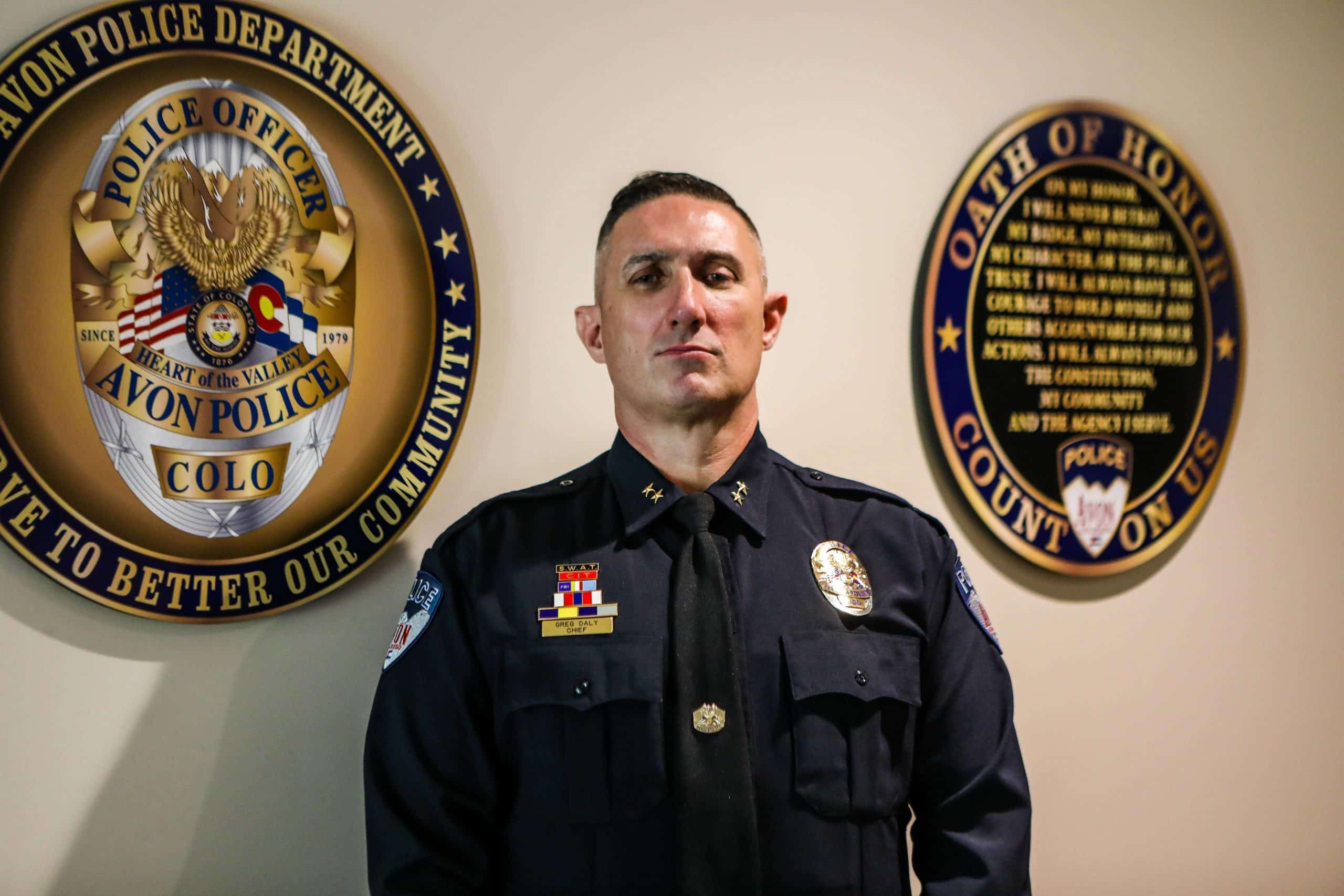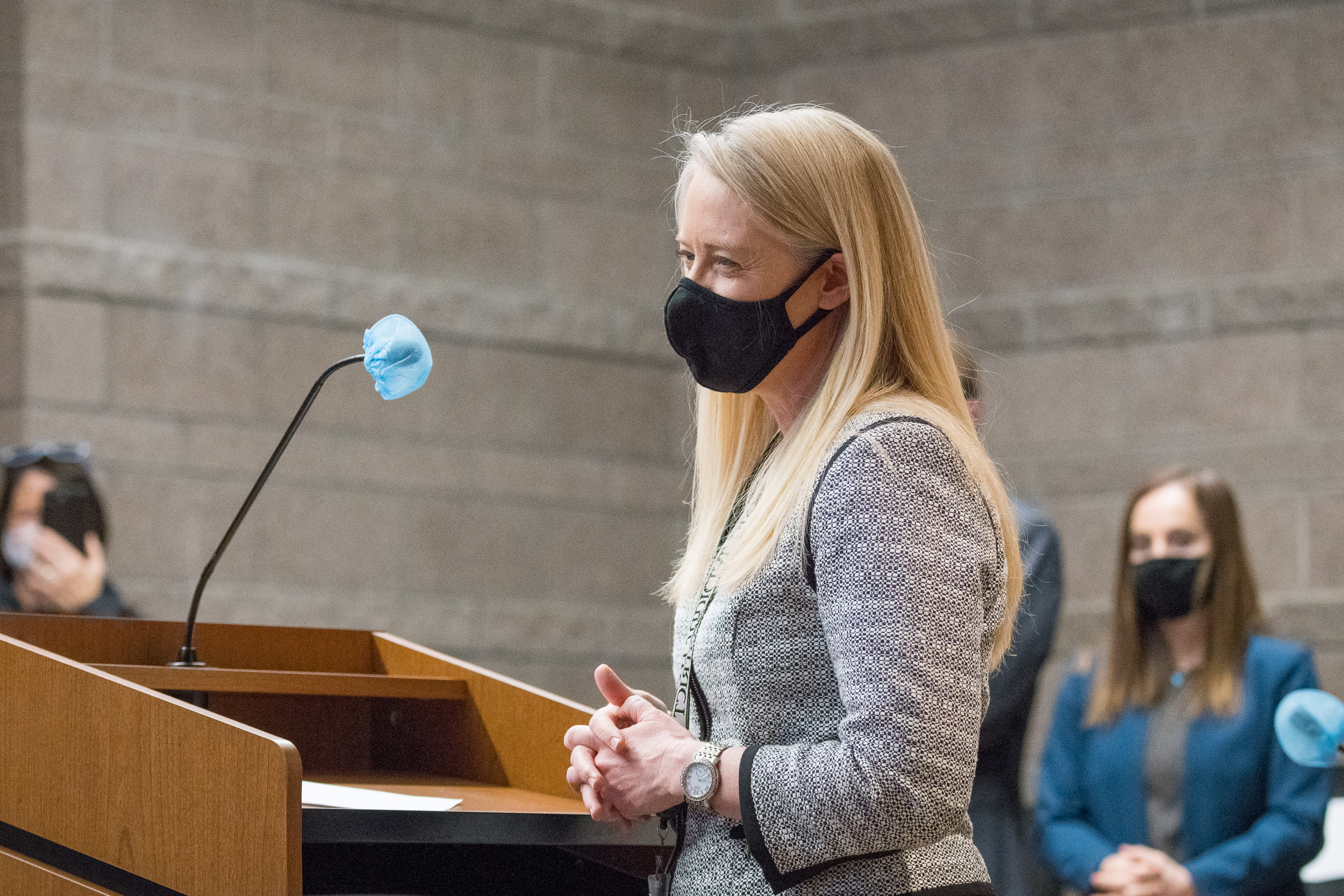The complexities of justice: Why so many sexual assault crimes are never prosecuted
Eagle County police, attorneys comment on challenges of investigating, prosecuting or defending sex assault crimes

Sexual assault crimes in Eagle County, as in the rest of the nation, are greatly underreported by victims, and the number of these crimes that are able to be prosecuted and, if prosecuted, lead to convictions becomes smaller and smaller still.
The Rape, Abuse & Incest National Network, the nation’s leading anti-sexual violence organization, gives a terrifying, two-part statistic that demonstrates just how deep the underreporting of sex assault crimes goes in the United States.
“Every 68 seconds, an American is sexually assaulted,” the webpage reads in bold print. “And every 9 minutes, that victim is a child. Meanwhile, only 25 out of every 1,000 perpetrators will end up in prison.”
Our legal system was structured so that defendants of any crime are presumed innocent until proven guilty, placing the burden on the prosecution to prove the defendant’s guilt “beyond a reasonable doubt.”
Even before prosecution, police must have “probable cause” to arrest a suspect and charge them with a crime, which can be complex when it comes to sex assault cases, Commander Ryan Kenney of the Vail Police Department said in a March interview.

Support Local Journalism
Of the 22 sex assaults handled by the Vail Police Department over the last five years, eight victims did not want to press charges, seven cases were deemed unfit for prosecution by the District Attorney’s Office and, in one case, police could not identify a suspect. This means that, out of 22 reports, only six arrests were made, according to Kenney.
There is a quote that states “it’s better that 100 guilty people go free than one innocent person go to prison,” said Deena Ezzell, a victim services coordinator with the Eagle County Sheriff’s Office.
“And while I believe that – I’d never want to see an innocent person go to prison – I’ve also worked with the 99 victims who suffered because of their case not being handled the way they felt it should be,” Ezzell said.
Reporting a sexual assault to police and seeing a case through to the end can be a lengthy and stressful process for victims as they wade through legal jargon, delays or unexpected outcomes, one sex assault survivor and former Eagle County resident said.
The Vail Daily is protecting the identity of the victim, who asked to remain anonymous so that what happened to her does not continue to impact her life and career.
“First, I had to deal with the fact that it happened and then I had to deal with the fact that it got delayed and then I had to deal with going to trial. So, it’s like all these different stages of having to go through different things and it just feels like it doesn’t end,” the woman said. “…I’m really glad that I did actually follow through, but I don’t get why people don’t.”
Local law enforcement agencies try to make this process easier on victims, but there are limits to what they can do.
One of the first hurdles for victims is deciding whether to report to police.

Reporting and evidence collection
Sex assault survivors who do choose to report right away are often asked to undergo examinations conducted by a sexual assault nurse examiner, also known as SANE exams, which are now able to be offered here in Eagle County through Colorado Mountain Medical’s Victim First Care clinic in Avon.
The exams are done to document physical evidence on the body of a victim and are conducted by a specially-trained nurse. The nurse works with victims at their comfort level to take samples and document any marks or bruising on the body, local sexual assault examiner nurse coordinator Amanda Shelley said.
According to a 2006 study published in The Journal of Emergency Medicine, the frequency of lacerations and abrasions able to be documented in sensitive areas may decrease from 50% at the 24-hour mark to 13% at the 96-hour mark, meaning time is of the essence. While the exams are strongly encouraged, most victims do not report right away and many do not complete the exams.
“Few adolescent and adult women seek out formal support services in the acute period (7 days or less) following a sexual assault. Instead, many women choose to disclose weeks, months, or even years later,” according to a 2016 article on delayed disclosure of sexual assault.
Choosing to wait or declining a SANE exam does not mean victims should feel discouraged from reporting incidences of sexual assault to police as physical evidence is just one piece of building a case, albeit an important one, Ezzell said. She encouraged victims to do the exams if it feels right for them, but pointed out that over 70% of sex assault victims have no visible injuries to begin with.
Ezzell, Victim Services Coordinator Reyna Medrano — Ezzell’s bilingual counterpart — and one other part-time coordinator make up the victim services unit at the Eagle County Sheriff’s Office. The team provides emotional support, information and resources to victims of all kinds of crimes.
Their work is supported by a network of volunteers or “community advocates” who handle some victim support responsibilities. Ezzell started out as a volunteer with the Sheriff’s Office more than 20 years ago.
Today, she has become exceptionally well-versed in her field and provides training opportunities to law enforcement officials across the valley.
Ezzell gets four hours with new law enforcement officers to cover the impacts of sexual assault, domestic violence, and sudden death on victims. She said she teaches officers to respond from a place of “trauma-informed care” and provides them with a basic understanding of “the neurobiology of trauma” when it comes to how victims may act or respond differently because of the impact that trauma has on the brain.
This is a lot to cover in four hours, Ezzell said, so she tries to encourage officers to engage with other learning opportunities whenever possible.
Avon Police Chief Greg Daly said he is glad to lean on the victim services team for their support as sexual assault calls can be especially difficult to respond to, but also to prove.
“Proving a case is extremely complex because in the vast majority of cases there are two persons involved,” Chief Daly said. “There are very rarely independent witnesses to the event. So, I hate to use the term, but it comes down to what’s referred to as a he said/she said type of scenario. We take the perspective of when somebody steps up and comes to report this type of crime, we will take the victim at their word in relation to what occurred.”

Beyond this, working a sexual assault case can have a deeper, traumatic impact on officers and other first responders even after the day is done, Daly said. He tries to ensure he rotates officers on to lighter calls or gives them time off after they work an especially difficult case.
“We get pretty upset because some of these cases our officers and detectives pour their heart and soul into the prosecution and then to hear a jury felt that there wasn’t enough when we, as very experienced professionals, know there is enough … it can be tough,” he said.
Prosecuting sexual assault cases
If police can gather enough preliminary evidence to arrest a suspect and bring charges against them, the case is then forwarded over to the 5th Judicial District Attorney’s Office.
Investigators with the District Attorney’s Office look into the case further, working alongside police to determine what, if any, final charges they can bring forward. At times, final charges can look quite different than the “arresting charges” brought forward by police.
Once the case moves to the courts, victims are connected with a victim advocate from the District Attorney’s Office to help walk them through the particulars of legal proceedings. Eagle County victims are paired with Annabelle Kinney, victim advocate for the 5th Judicial District Attorney’s Office.
“Each victim is different,” Kinney said of her work. “If they’re wanting more communication from me, I try to give them the communication that they want and need. If they’re kind of getting burnt out, I’ll still tell them everything they need to know … but I just try to feel out what level of communication a victim wants at any given time.”
The Eagle County survivor who spoke with the Vail Daily said that, even with Kinney’s help, the drawn-out process of prosecuting the case against her assailant was one of the most difficult things she has had to go through.
Local defense attorney Jesse Wiens said he believes that “both sides in these cases deserve to be treated fairly, both the accuser and the accused.”
“I look at myself as providing a role for somebody who’s been charged, who is entitled to a defense,” said Wiens, who has been an attorney for 20 years now and has worked on, by his estimation, at least 50 sexual assault cases.
“…On the one hand, our goal as a society is to help victims come forward and yet, on the other hand, (there is) the requirement to treat anybody accused of a crime fairly and presume them to be innocent unless and until proven guilty. That’s a hard meeting of the mind.”
After a defendant has been advised of the charges brought against them by the District Attorney’s Office, they can request a preliminary hearing to force the prosecutor to present enough evidence up front for a judge to determine if there is enough for the case to proceed. Sometimes victims will be asked to testify at these kinds of hearings, depending on the facts of the case.
If they are, this may mean the victim has to face the defendant and answer questions about what happened to them, from both the defense and the prosecution, twice — once at the preliminary hearing and again at the trial if the defendant pleads not guilty. This can be difficult for victims.
“If ever victim has to see the defendant, if they have to testify, that’s something that people say a lot that they’re really anxious or scared to see the person that assaulted them,” Kinney said.
If the prosecution presents enough evidence to move beyond a preliminary hearing, the two parties move into a phase of negotiations in which they try to work out a plea deal to get the defendant to plead guilty in exchange for perhaps a lighter sentence than what could be handed down if the matter were to go to trial.
If they plead guilty and accept an offer negotiated, a sentencing hearing will be set.
Wiens said that “…a lot of sexual assault cases go to trial because I think the prosecutors, as in all their cases, have an obligation to believe their victim and be their voice and my job is to do the same for the accused. And very often it’s difficult to find a middle ground that’s acceptable to either side.”
If the defendant ultimately decides to plead not guilty, the matter will be set for trial. Either can lead to delays in court proceedings as there are many moving parts, but the latter typically means that things are going to move a bit slower.
Delays, delays, delays
This was the case for the Eagle County survivor after the defendant in her case pleaded not guilty. The case stretched on for nearly three years with COVID-19-related delays, a motion to dismiss the case filed by the defense and a subsequent appeals process that went all the way up to the Colorado Supreme Court.
“I could have not thought about this for two and a half years, and I chose to have to think about it, which obviously was the right thing to do,” the woman said. “But I get why people don’t report it or maybe report it and then just say, ‘Never mind. I don’t want to do this anymore.'”
Commander Kenney said that tourists, second-home owners and seasonal workers account for the vast majority of the sexual assault reports his department receives. This makes the victim much less likely — and sometimes unable — to see a case through to the end.
“A lot of times it’s inconvenient. It’s expensive. It takes away from their lives, their jobs,” he said. “So, it makes it incredibly difficult to have that unique situation of having a victim who doesn’t live here and will have to return back to court.”
Delays in court proceedings can be due to procedural or logistical necessities or scheduling issues like a backlog in cases, Kenney said. The latter has been a bigger issue in the last two years as the pandemic has required the periodic closure of courtrooms.
Sometimes, though, delays can feel more like a tactic employed by the defense to deter victims from remaining involved, Deputy District Attorney Johnny Lombardi of the 5th Judicial District said in an August interview.
“I felt like it was just going to keep getting delayed and delayed and delayed until I gave up,” the Eagle County survivor said. “I felt like they were just trying to push me to the point where I would just give up.”
District Attorney Heidi McCollum said she could not speak to whether delays in court proceedings are intentionally caused by defense attorneys, but said that a delay in a case is certainly never good for the prosecution as memories fade or become more difficult to recall with accuracy.

“The longer a case sits out there before going to trial, the better chance we have of witnesses not being able to be found, people not recollecting, people not wanting to participate simply because it’s been so long,” McCollum said. “When a victim testifies, it is almost always a stronger case.”
It is moments like these when Kinney steps in to try to ease the anxiety and confusion this kind of elongation can create for victims, she said.
“That’s probably the No. 1 complaint we get in any case and especially for sex assault cases because it’s so emotionally draining every time they get an email from me …” Kinney said. “It’s just reminders that are over time and it seems like they’re never-ending I’m sure.”
Before a trial can begin, the judge and the two parties must select a jury, most often a jury of a 12 people with one alternate who fills in if another juror can’t participate in deliberation.
Selecting a fair and impartial jury, especially in a small county, is challenging in any case but especially in sexual assault cases, Wiens said.
“There are a lot of people that, frankly, just come into court and say this isn’t the right type of case for me, for whatever reason, and people have the right to say that,” he said. “Some people admit that they can’t be fair to a defendant charged with something like that.”
Troubles with jury selection can cause further delays and sometimes even leads to a mistrial if there are not enough suitable jurors, at which point the trial would need to be rescheduled. Once this is settled, the trial begins.
Testifying at trial
When the Eagle County sex assault survivor was subpoenaed to speak at the trial of her assailant, she said it was not as hard as she feared it might be, at least not when the prosecutors were questioning her. But then comes “cross examination,” the time when defense attorneys ask questions to poke holes in the prosecution’s argument and highlight other evidence.
“It was really insulting for sure,” she said. “…I kept having to repeat myself over and over and he kept saying, like, ‘You were really drunk so how do you know what actually happened? Or how did you not wake up? Why didn’t you scream?’ … Just trying to basically say I reacted wrong.”
In general, “I don’t know of any defense attorney that wishes harm upon any witness and yet we have a role to play through cross examination, which is trying to make sure that the appropriate facts come out,” said Wiens, who was not a part of the Eagle County survivor’s case.
In the case of the survivor who spoke with the Vail Daily, the defendant, George Brown, was found to be guilty on six counts related to sexual assault charges brought against him back in 2019.
“That was like huge for me — such a relief like such a weight taken off my chest,” the survivor said.
The sentencing
If a defendant is convicted, they are set for a sentencing hearing. At this point, victims are invited to speak freely, rather than just answering questions asked by attorneys, about the impact the crime had on them. They are encouraged by prosecutors to do so, but this piece is ultimately up to them.

“He killed me that day. Maybe not literally but mentally and emotionally, he did,” one of the two victims in the Brown case said in his December 2021 sentencing hearing. “I am not the same person who was sleeping in that bed; I am broken.”
“…He deserves to have this follow him for the rest of his life and haunt him, just like it haunts me,” the woman said.
After statements from the victim(s), the defendant and any other people who wish to speak on either party’s behalf, the judge hands down the sentence.
“One of the unique things about sexual assault cases is that they can carry indeterminate sentences, which means the judge determines a base sentence within some statutorily defined range, but it’s that base amount up to your life in prison, and it’s actually up to the Department of Corrections to determine whether to ever let you out,” Wiens said.
In deciding this, parole boards look at “what the underlying offense was, whether or not you’ve gone through the treatment inside of the prison system, whether or not your treatment providers consider you to be a low or high risk of re-offending…” he said.
In most higher level sex assault cases, especially those brought against adults, prosecutors will advocate for some kind of incarceration. The judge must decide, based on the facts of the case and the results of “pre-sentence investigations,” whether a defendant poses a danger to society and should therefore be sentenced to prison or whether they are a good fit for rehabilitation through community corrections or a probationary sentence.
For the Eagle County survivor, she said she wasn’t sure what she wanted out of her perpetrator’s sentencing, which could have entailed a life sentence in prison.
“I don’t want to say I felt bad but it was kind of like … just crazy that that could be his whole life like, that’s it, he’s just in prison forever,” she said. “I knew his mom and she’s a good lady and now her son could go to prison forever. So, I had to be reminded like I’m not the one sending him to prison, he sent himself to prison because he’s the one who did that.”
Ultimately, he was sentenced to four years in a community corrections facility with a mandatory parole period of 10 years to life, requiring him to be registered as a sex offender.
‘You can do it’
Despite the stress of the case, the Eagle County survivor maintained that it was worth it, saying she is glad she reported her assault to police and saw it through to the end.
She said that, if she could sum up her experience into one message for other victims, it would be this: “You can do it. I did it. My friend did it and we made it through. So, if you feel like it’s right, you should do it because it’s going to be hard, but … I just remember the day of finding out he was guilty like it was definitely really emotional, but it was such a good feeling.”
“… People stepping out is so important because hearing stories does change how people think about (sexual assault),” she said.
“Think of the person who did it to you,” Lombardi said of his message to victims. “If they’re not prosecuted, they can do it to somebody else.”
Local law enforcement officials are working harder than ever to be proactive in preventing crimes of sex assault and sexual abuse through innovative partnerships and increased educational opportunities for students, parents and the public at large.
Moving forward, it will be important that the responsibility to be educated and seek support is not only placed on victims or potential victims of sexual assault, Ezzell said. We must also be providing education on boundaries and informed consent, not just on how not to be assaulted.
People who are beginning to notice “sexually deviant” tendencies or who may be at risk of committing sexual assault or sexual abuse can turn to StopItNow.org, which offers a support hotline for potential perpetrators.
If you or someone you know has experienced sexual assault or sexual abuse, Bright Future Foundation’s 24/7 hotline can be reached at 970-949-7086.









